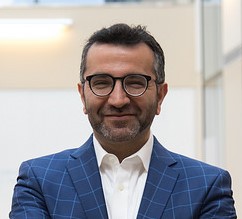Content from the Brookings Doha Center is now archived. In September 2021, after 14 years of impactful partnership, Brookings and the Brookings Doha Center announced that they were ending their affiliation. The Brookings Doha Center is now the Middle East Council on Global Affairs, a separate public policy institution based in Qatar.
This post is the fifth in the Pandemic Politics series.
Fighting all forms of racism, including Islamophobia, is part and parcel of the effort to eradicate COVID-19. Discrimination in the midst of the pandemic hinders attempts to contain the virus and projects a misleading image of the role of Muslims.
For example, Muslim images irrelevant to the pandemic, such as a mosque or a Muslim woman wearing a headscarf, accompanied COVID-19 stories in the West. This was made shockingly clear when major media outlets, such as The New York Times, CNN, and BBC published images of mosques in Istanbul for stories about the U.S. suspension of travel from Europe to mitigate the spread of the coronavirus. This was misleading, especially as Turkey was not on the list of countries banned from allowing passengers to travel to the United States. As Mobashra Tazamal and Kristin Garrity Şekerci note, “These images convey subtle, indirect messages that link Muslimness and Muslim religiosity to panic around mass sickness, infection and deadly contagion.”
COVID-19 has also laid bare pre-pandemic structures of Islamophobia, such as those installed by the Modi government in India. Jayshree Bajoria argues that this has exacerbated the demonization of Muslims in the country, where they are blamed for spreading the virus.
Islamophobia also adversely impacts global efforts to fight the pandemic. Sandeep Kumar and Sumit Ray warn that such discrimination inflicts “great harm during an epidemic” as it instills fear within minority groups and discourages them from reporting symptoms. This, they continue, prevents the development of “information which is crucial to arrest and combat the effects of a rapidly evolving epidemic.” Moreover, Eeshita Chib notes that in the case of the United Kingdom, Islamophobia “undermine[s] the significant work of [the] Muslim community in supporting the national effort, from working on the frontline … to setting up community initiatives.”
In response to recent xenophobic violence, U.N. Secretary-General Antonio Guterres urged states to “act now to strengthen the immunity of our societies against the virus of hate.” However, fighting COVID-19 and fighting racism are not parallel struggles. Policies designed to tackle this public health crisis are inextricably linked to curbing the spread of hate.
Below is a short selection of articles for more on this debate.
“Dangerous rhetoric that fans the flames of Islamophobia and further dehumanizes Muslims will only add to the ever-increasing global death count.” — Mobashra Tazamal, Senior Research Fellow at the Bridge Initiative and Kristin Garrity Şekerci, Senior Research Fellow at the Bridge Initiative. Islamophobia Has No Place in the Fight Against COVID-19, April 14, 2020.
“Today, as the world battles coronavirus (COVID-19), which has already claimed thousands of lives, India is also battling another threat to life — Muslim hate.” — Jayshree Bajoria, Senior Researcher in the Asia division at Human Rights Watch. CoronaJihad is Only the Latest Manifestation: Islamophobia in India has Been Years in the Making, May 1, 2020.
“Stigmatisation makes people fearful and they shrink into the shadows, leading to concealment of cases and delays in detection. Fearful people are less likely to seek medical attention, more likely to suffer from the serious consequences of their ailments and contribute to the spread of disease.” — Sandeep Kumar, Associate Professor at Harvard Medical School and Sumit Ray, Chief of Medical Services at Artemis Hospital Gurugram. How bigotry, like COVID-19, can go viral: The ABC of a modern pandemic, April 14, 2020.
“The far-right activists in the UK stand united in their view that Islam and Muslims are the spreaders of the virus, as this would fit well within the broader known far-right ideology depicting Muslims as ‘parasitical’ to the society — foreign, alien and ‘disease-like.’” — Eeshita Chib, Research Intern at the Observer Research Foundation. Islamophobia and the COVID-19 pandemic in the UK, May 29, 2020.

Commentary
Op-edPandemic politics: A public health crisis and a hate crisis: COVID-19 and Islamophobia
Wednesday, June 17, 2020